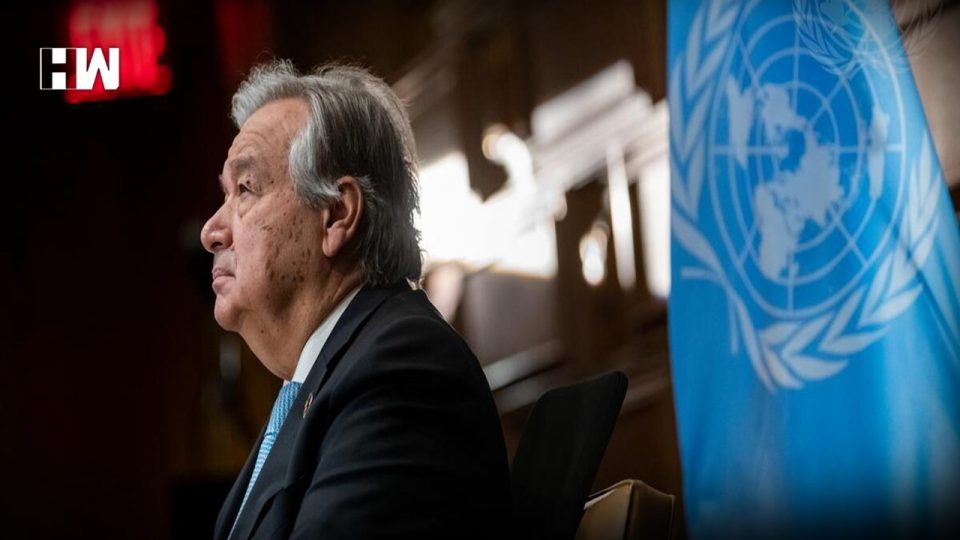In his first major speech of the year, the UN Secretary-General underlined the need for global cooperation to address today’s challenges such as the COVID-19 pandemic and climate change.
António Guterres was speaking on Sunday during a virtual event to commemorate the 75th anniversary of the first meeting of the UN General Assembly, which was held in London.
“The work of the General Assembly has helped to boost global health, literacy, and living standards, and to promote human rights and gender equality,” he said, reflecting on some of its accomplishments since then.
Delivering for the world’s people
The General Assembly is familiarly known as the world’s town hall.
It is the place where UN Member States can peacefully address their differences and find solutions to global challenges, according to the current President, Volkan Bozkir of Turkey.
“Over the past 75 years, we have achieved more together than we could have apart,” he said in a video message for the online commemoration, which was co-hosted by the Foreign, Commonwealth and Development Office of the United Kingdom.
“As we move into the next 75 years and our world becomes ever more connected, let us tighten those bonds, so we can best protect and deliver for the peoples we serve.”
While the international community can be proud of its collective accomplishments, the Secretary-General stressed the need for greater action in the face of pressing issues, including the pandemic.
Nearly two million COVID-19 deaths have been reported worldwide as of Sunday, according to data from the World Health Organization (WHO).
‘A human tragedy’
The Secretary-General has frequently spoken of how the crisis has exposed inequalities and fragilities, both within and among countries, including threats to women and girls. It has further highlighted serious gaps in global cooperation and solidarity.
“We have seen this most recently in vaccine nationalism, as some rich countries compete to buy vaccines for their own people, with no consideration for the world’s poor,” he said.
Meanwhile, global response to the climate emergency has been “utterly inadequate,” he added.
Climate action a top priority
Although the UN chief described the pandemic as “a human tragedy”, he emphasized that it can be an opportunity to achieve a more sustainable and equitable world, as outlined in the Sustainable Development Goals (SDGs) and the Paris Agreement on Climate Change.
“The central objective of the United Nations this year is to build a global coalition for carbon neutrality by the middle of the century. We need meaningful cuts now, to reduce global emissions by 45 per cent by 2030, compared with 2010 levels,” he said.
Mr. Guterres also reported that a global survey conducted last year revealed climate action is a top priority for the world’s people, more than 1.5 million of whom shared their hopes and fears as part of events marking the UN’s 75th anniversary.
Find new ways
People worldwide also want to see better access to healthcare, education, safe water and sanitation, according to the survey. The majority, or a staggering 97 per cent, called for improved international cooperation to address global challenges.
UK Minister of State, Lord Ahmad of Wimbledon, acknowledged the collective concern over the damaging impact of climate change on the natural environment and global security.
“We all need to find new ways of doing things, so our progress is not at the expense of our planet but by us working together,” he said, recalling that the UK will co-host the latest global climate change conference, known as COP26, to be held in Glasgow, Scotland, in November.
Dialogue with youth
Following the official segment, the Secretary-General answered questions from several young people working in areas such as climate action, gender equality, global health and peace.
Josie Naughton, co-founder of Choose Love, an organization that supports people displaced by conflict or persecution, asked about his appeal for a global ceasefire during the pandemic. She wondered if it could be a reality.
Mr. Guterres reported on tentative progress, including in Syria, Libya and South Sudan, but noted that conflict still rages in places such as Yemen. He cited mistrust and “spoilers”, or external involvement in a country’s affairs, as obstacles to peace.
“Look at Libya: the spoilers are making it much more difficult to move forward after the ceasefire into a political solution. And we need to make sure that we are able to put an end to this kind of interference of countries that undermine the possibility of those that are in conflict in one country to come together,” he said.
The Secretary-General underscored the importance of a unified UN Security Council, and for major powers to overcome their differences and work together.
“We need a strong Security Council able to take decisions and to implement them to make sure the ceasefires that are declared are implemented, and those that have not yet been possible become possible.”
As an independent media platform, we do not take advertisements from governments and corporate houses. It is you, our readers, who have supported us on our journey to do honest and unbiased journalism. Please contribute, so that we can continue to do the same in future.

